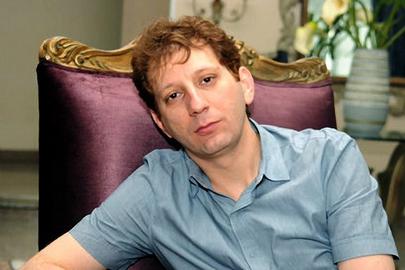
On the morning of Sunday, March 6, Gholam-Hossein Mohseni-Ejei, spokesman for Iran’s judiciary, announced that the billionaire Babak Zanjani and two of his business associates, British-Iranian Mahdi Shams and Iranian Hamid Fallah Heravi, had been sentenced to death.
For the last few years, the Zanjani scandal has stood out as one of the most significant cases emerging from international sanctions against Iran and the economic environment they produced. With the blessing of the Iranian government, Zanjani and his associates repeatedly bypassed sanctions, selling Iranian oil abroad and pouring the proceeds back into the Iranian economy. But they also made huge profits for themselves, shortchanging the government to the tune of around $2.2 billion.
When the case against Zanjani and his associates came to court, the billionaire repeatedly claimed that he and his associates had cooperated with Iran’s security and economic institutions to help reach solutions to the some of the most severe problems sanctions had ushered in. He also transferred the assets he held in Iran to the National Iranian Oil Company, but ministry officials claim that their value fell considerably short of his debt, arguing that the majority of his assets are actually held in companies he and his team had set up outside of Iran, including in Turkey, Tajikistan and Malaysia.
The court found Zanjani, Shams and Heravi guilty of “corruption on earth.” According to Article 286 of Iran’s penal code, the punishment for anyone found guilty of causing “severe disruption” or “insecurity” to the “public order of the state” — whether by damaging the economy, or participating in prostitution or corruption — should face the death penalty.
In the first trial of the case, which concluded on October 3, 2015, Tehran’s Assistant District Attorney cited various charges against Zanjani, including “disrupting the economic order of Iran,” “extensive swindling of the Iranian National Oil Company,” “money laundering” and “spreading lies.” The district attorney recommended that Zanjani be condemned as a “corruptor on earth”.
The presiding judge in the case was the infamous Revolutionary Court judge Abolghasem Salavati, who has an international reputation for widespread and consistent violation of human rights. In 2011, the European Union placed Salavati on its sanctions list in connection with these violations. As he has been so prominent in the public eye, it is likely that the Iranian judiciary appointed him to the Zanjani case as a way of repairing the judge's image, giving him the opportunity to demonstrate his strong resolve and ability to take firm action in one of the country’s most significant corruption cases.
There are 209 files connected to the Zanjani case, the most important of which was money laundering. According to the files, Zanjani laundered almost two billion Euros, an amount he owes to the Iranian National Oil Company, and which he refuses to pay.
The Zanjani scandal has been big news in Iran, particularly since his arrest in late December 2013. And there has been much debate and discussion across social media in response to the verdict. On IranWire's Facebook page, one person pointed out that there were two sides to the scandal, and that it was ridiculous to punish only the people responsible for selling goods illegally. A just system would ensure that both the buyer and the seller faced punishment. He also attacked Iran's judicial system. "Laws about 'corruption on earth and 'fighting God' are made-up laws. They are the laws of the jungle," he wrote, adding that these charges belonged to the "time of Khalkhali" — referring to Ayatollah Sadeq Khalkhali, known as the hanging judge responsible for large numbers of executions in the aftermath of the 1979 revolution. There was widespread condemnation of the sentence, with dozens of people insisting that it was not the role of judiciary to decide whether a person lives or dies.
Ahmadinejad's "Solutions Team"
A number of high-ranking government officials and security personnel were also named in connection with the case, including four cabinet ministers under former president Mahmoud Ahmadinejad. The four apparently gave Zanjani permission to engage in commercial dealings that bypassed sanctions.
Zanjani was extremely influential during the presidency of Ahmadinejad, so much so that, on June 27, 2012, three cabinet ministers working for the Oil, Economy and Industry and Mines and Commerce ministries authorized Zanjani to pursue his financial dealings, making it possible for him to expand his business activities with the support of government institutions.
According to the March 6 indictment read out in court, the “President’s Special Headquarters for Finding Solutions,” which was headed up by the three ministers, was responsible for authorizing Zanjani's dealings. The body was purportedly set up to deal with economic difficulties resulting from international sanctions, but in reality it became a conduit for corruption. The court’s indictment stated that the First Islamic Investment Bank, based in Malaysia and owned by Zanjani, was granted permission to “deposit proceeds from oil in the accounts controlled by the defendants.”
What about the Revolutionary Guards?
The Zanjani case also implicated figures from two of Iran’s most important security agencies, the Intelligence Ministry and the Intelligence Unit of the Revolutionary Court. Among those named, the most prominent were Mohammad Yazdi, the Intelligence Ministry’s Deputy for Economic Affairs under Ahmadinejad, and Hossein Taeb, head of the Revolutionary Guards’ Intelligence Unit. Throughout the period when the corrupt dealings were taking place, the two agencies were thought to have been at loggerheads.
During his defense, British-Iranian dual citizen Mehdi Shams outlined his dealings with the Revolutionary Court’s Intelligence Unit. It was Shams who introduced Babak Zanjani to the Oil Ministry, thereby laying the groundwork for him to pursue deals in the oil sector. Shams was active in Dubai and Istanbul.
In 2012 and 2013, when first the European Union and then the US Treasury blacklisted Babak Zanjani, Mehdi Shams took his place, running his deals outside Iran and continuing operations to evade sanctions.
Hamid Fallah Heravi, the third defendant in the case, had direct links with the Iranian Intelligence and Defense Ministries.
Babak Zanjani worked closely with the two Revolutionary Guards-affiliated organizations, which oversee a range of important activities across Iran's economy, including dam construction, petroleum, petrochemicals, marine structures, ship-building and tunnels. Zanjani also cooperated with the Revolutionary Guards by importing pharmaceuticals and meat products and working with Ansar Bank, which is also affiliated with the Guards. He bought the airline Qeshm Air from the Revolutionary Guards.
So far, senior officials from Revolutionary Guards organizations have not responded to the court's decision. Guards-affiliated media have tried to portray Zanjani as a hero who helped Iran during the dark and difficult days of international sanctions.
Although the fact that Zanjani and his associates have been sentenced to death may have come as a surprise to the Guards, the organizations that directly benefitted from the scandal may be afforded some protection from the decision, as further names will probably not be forthcoming. As Amir Abbas Soltani, head of the parliamentary committee in charge of pursuing the case of Zanjani has said, “Babak Zanjani is just a shop window” — the real culprits have yet to be identified, and they will now be breathing sighs of relief.
This sentiment has been echoed by members of the public. “They should let him talk before executing him,” wrote one person on Facebook. “Do they think that the people are asleep? How can a young man bypass the government and Europe and easily make so much money in the face of heavy sanctions? I believe that people must support Zanjani so he is freed and can announce the names of all who were involved.” Another wrote that Zanjani was a “burnt-out pawn“ who was being sacrificed “so that the names of government grandees, the house of the supreme leader, ministers of oil and and senior commanders will not be revealed.”
Another commented: “Death sentence? What has he done that others have not? If they arrest the drunkards then whole town must be arrested.”
Rouhani’s administration will not necessarily welcome the Zanjani verdict: It had hoped to recoup $2.2 billion in oil money, but this now seems unlikely to happen. Iran’s judiciary, on the other hand, will be able to claim the court’s decision as a victory, proof to the world that it handles corruption cases with authority, determination and dilligence.
Related Articles:
IranWire Exclusive: The Case of Babak Zanjani — And its Fallout
visit the accountability section
In this section of Iran Wire, you can contact the officials and launch your campaign for various problems

























comments